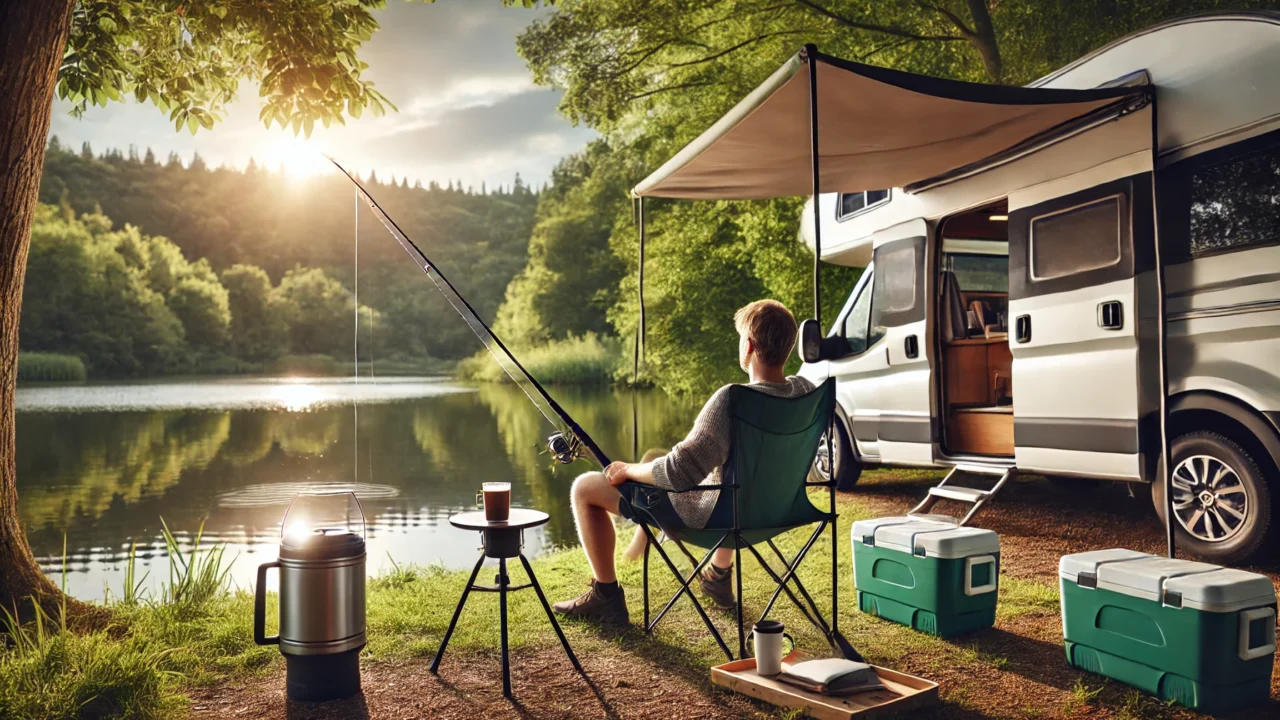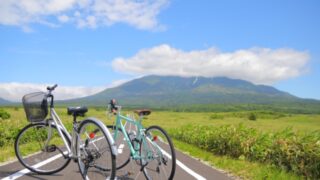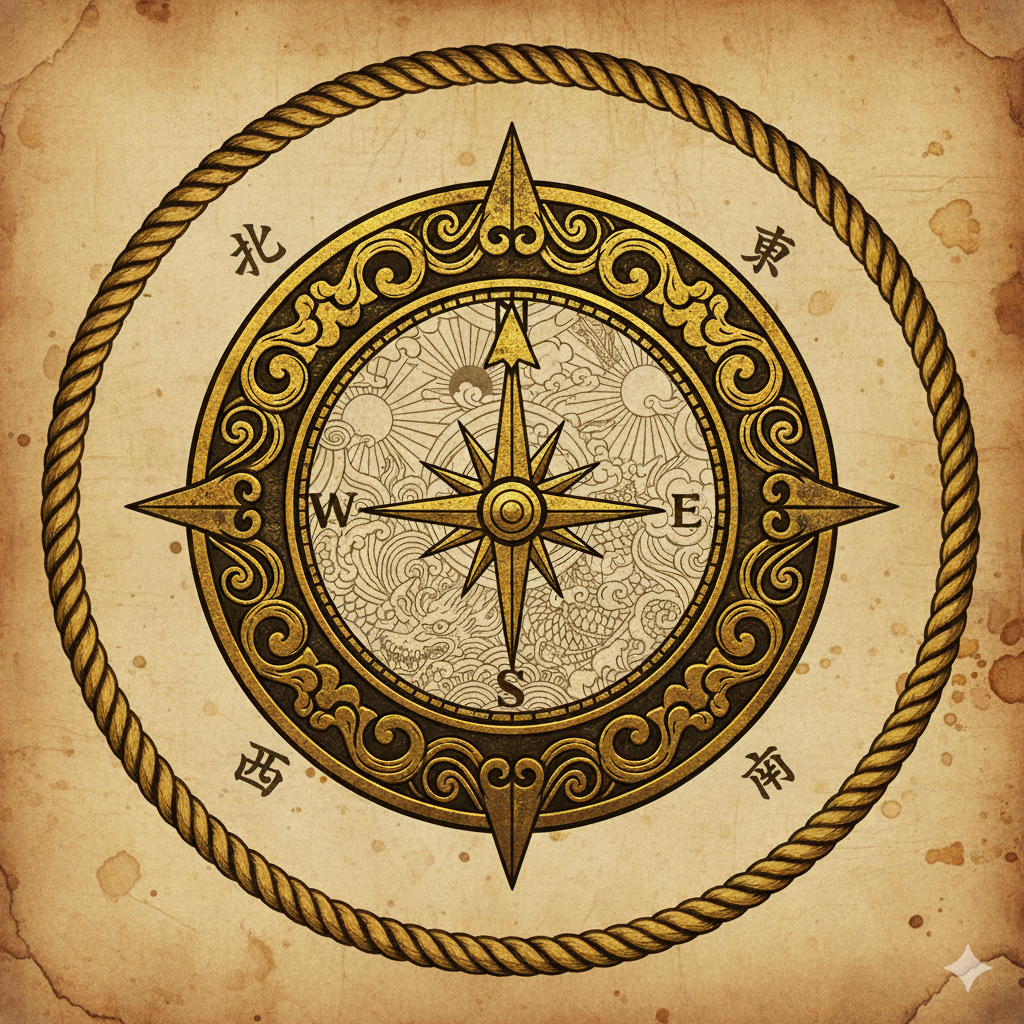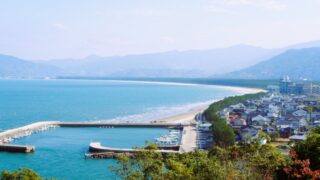Experience the Ultimate Japanese Fishing Adventure with a Campervan
Are you an avid traveler looking for an active, nature-focused escape in Japan? Exploring the country’s diverse waters by campervan is an unforgettable way to combine your passion for fishing with the freedom of the open road. With a campervan, you can store plenty of gear, move at your own pace, and enjoy the comfort of a mobile base camp—anytime, anywhere. Whether you’re parking at the water’s edge to catch the sunrise bite or relaxing in a cozy camper after a day’s fishing, this style of travel lets you experience Japan’s natural beauty to the fullest. Before you set off, however, make sure you know the local rules, etiquette, and licensing requirements. Here’s everything you need to plan the ultimate campervan fishing adventure in Japan!
1. Why Fishing with a Campervan Is So Special
The biggest advantage of fishing with a campervan in Japan is the unparalleled freedom and comfort it provides. You can head to any fishing spot that allows overnight parking, arriving just in time for the ideal fishing window—be it dawn or dusk. If you’re tired, you can relax or nap on-site without leaving your favorite fishing location.
A campervan also offers substantial storage space for fishing rods, lures, tackle boxes, and even items like barbecue sets, portable showers, and extra layers for cold weather. Traveling with friends or family? You’ll have plenty of room for everyone to gather inside, and you can even cook up your fresh catch on the spot.
2. Essential Gear and Choosing the Right Campervan
To make your fishing trip smooth and enjoyable, bring the following essentials:
- Fishing Equipment: Rods, reels, lures or bait, tackle, a landing net, and spare lines
- Storage Cases: Tackle boxes or containers to keep gear organized
- Cooler Box: An absolute must for preserving your fish at peak freshness
- Safety & Extras: Life jacket, headlamp, rain gear, and warm clothing
- Campervan Add-ons: Solar panels, portable refrigerators, water tanks, and portable toilets
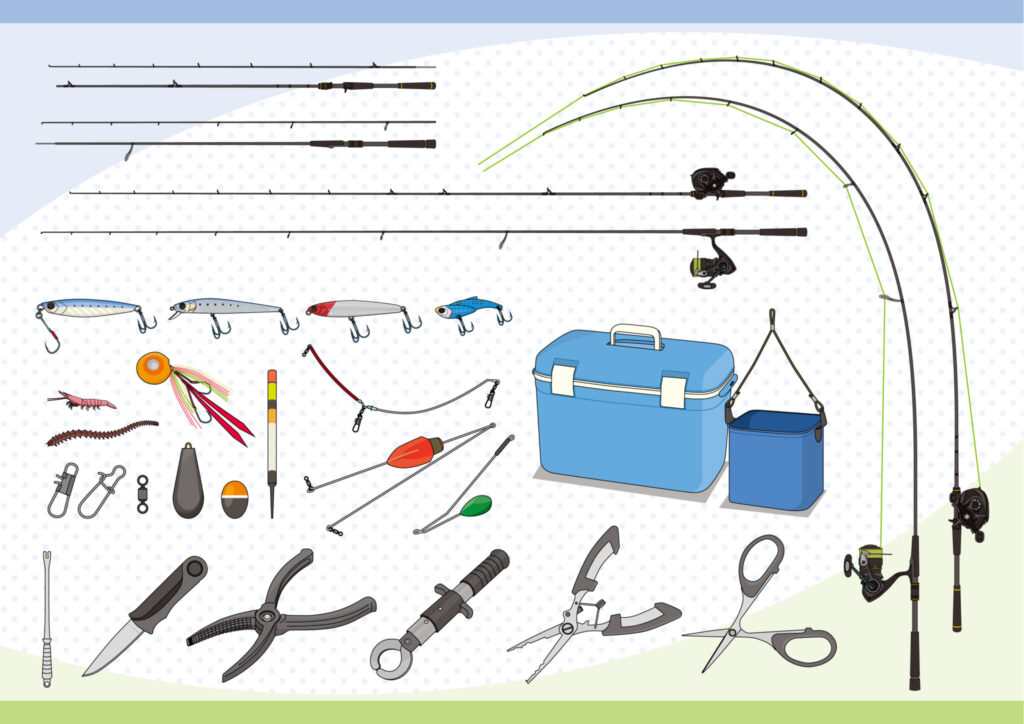
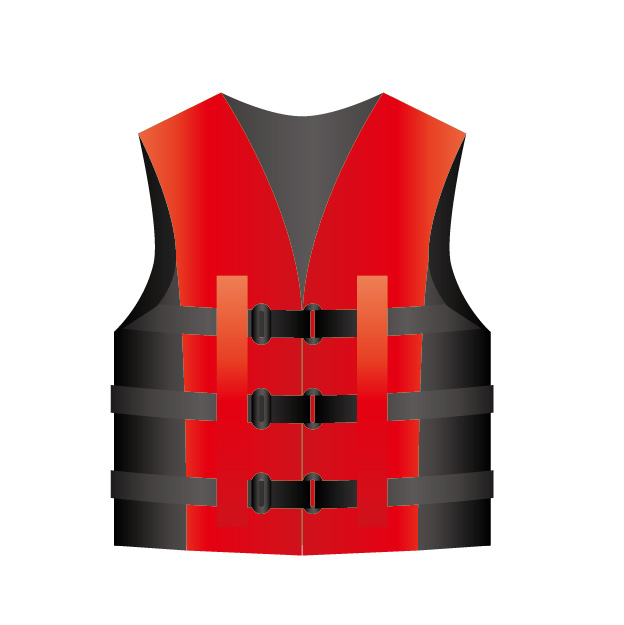
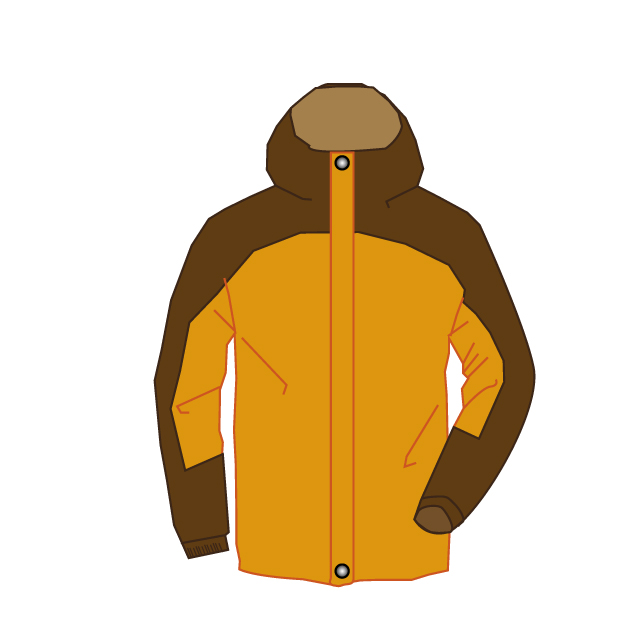
When selecting a campervan, consider where you plan to fish. If the area involves rough, unpaved roads or mountain passes, a 4WD or a more compact camper will be easier to maneuver. For coastal fishing spots or larger parking areas, a bigger, more luxurious camper provides maximum comfort.
3. Researching Fishing Spots in Japan
Finding the right fishing spot is crucial. Here are a few ways to gather reliable information:
- Online Searches: Look for local fishing blogs, review sites, and social media posts for real-life catches and photos.
- Tackle Shops: Staff at local shops can provide up-to-date tips and sometimes reveal hidden gems.
- Map Apps: Use Google Maps or dedicated fishing map apps to check parking availability and restroom facilities.
- Fishing Apps: Tools like tide graph apps or fish finder apps help you track water movement and identify good fishing points.
The more prep work you do, the higher your chances of a successful day on the water.
4. Season, Weather, Time of Day & Tackle: How to Boost Your Catch
Improving your catch rate depends on targeting the right fish in the right conditions:
Interacting with local fishermen or employees at tackle shops is often the key to finding the best spots and techniques for a particular area.
5. Cooking Your Fresh Catch on the Spot
One of the highlights of fishing with a campervan is being able to cook your catch right away. Here are some simple and delicious ways to prepare fish:
- Sashimi: Enjoy raw fish at its freshest. Clean and fillet the fish, then serve thin slices with soy sauce and wasabi.
- Shio-yaki (Salt-Grilled): Sprinkle salt on the fish and grill it on a portable stove or the campervan’s built-in grill.
- Acqua Pazza: An Italian-style dish where fish and vegetables simmer in tomatoes and olive oil.
- Fried Dishes: Small fish or white fish fillets are perfect for tempura or karaage (Japanese-style fried fish).
Be sure to clean and gut the fish on-site for better taste and to maintain good hygiene during cooking.
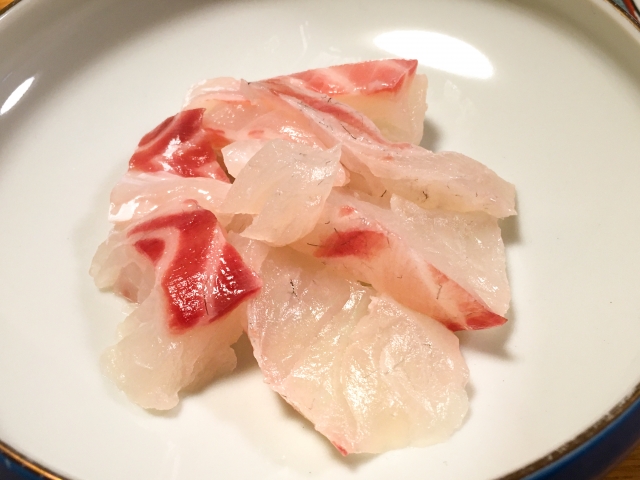
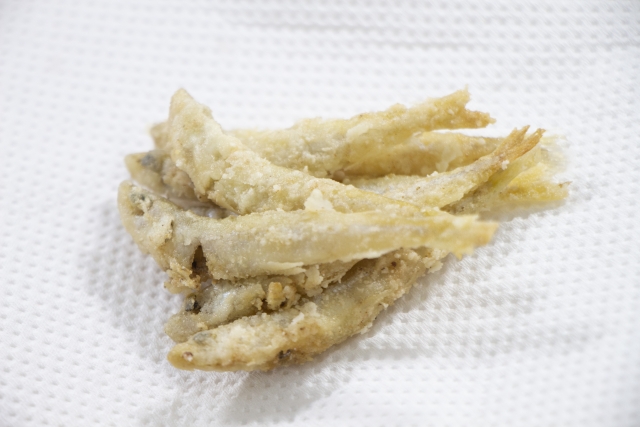
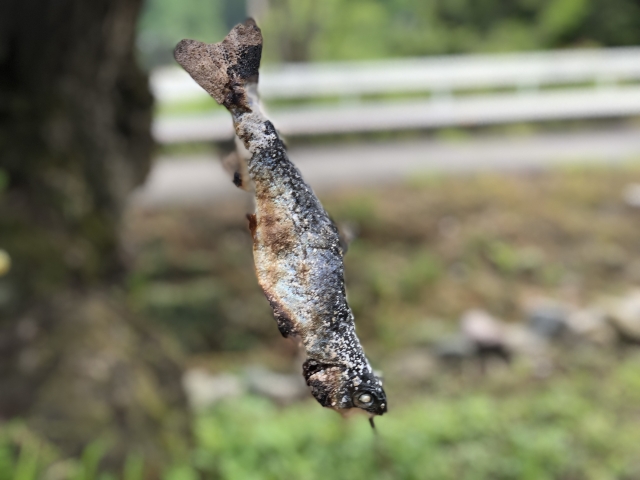
6. Keeping Fish Fresh for Transport
If you plan to bring fish home, proper storage is critical:
- Bleeding the Fish Immediately: Removing blood right after the catch keeps the flesh fresh and tasty.
- Ice & Coolers: Always pack plenty of ice. If the fish will be in direct contact with ice, place a wet cloth on top to protect the skin.
- Use Refrigerant Packs: Longer-lasting than ice alone, they help maintain a cold environment.
- Ice Slurry: Submerging fish in salted ice water helps them stay firm and cool.
- Remove the Entrails: Gut the fish and pack ice inside to minimize spoilage.
Following these steps ensures you’ll be enjoying top-quality fish long after you’ve left the water.
7. Rules and Etiquette: Fishing Responsibly in Japan
Adhering to local rules and respecting the environment is essential, especially when using a campervan:
- Parking Regulations: Confirm in advance whether overnight parking is allowed. If not, you may need to park elsewhere and walk.
- Carry Out All Trash: Don’t leave any litter, fishing line, or unused tackle behind.
- Noise Control: Keep quiet during late-night or early-morning hours to avoid disturbing others.
- Local Regulations: Watch for no-fishing zones or closed seasons. Always read signage and consult local tackle shops to stay informed.
- Environment Care: Avoid overfishing and practice catch-and-release for certain species if required or recommended.
Because campervans are often large and noticeable, good manners go a long way to maintaining a positive relationship with local communities.
8. Fishing Permits and Local Regulations
Many freshwater fishing spots in Japan require a fishing permit (known as a yūgyo-ken). Here’s what you need to know:
Always check the latest information before heading out to ensure you’re fishing legally and ethically.
Conclusion: Embrace Japan’s Great Outdoors with a Campervan
Whether you rent a budget-friendly van conversion or opt for a spacious, fully-loaded camper, exploring Japan’s waters by campervan offers unmatched freedom. From secluded mountain streams to wide-open coastlines, you can tailor your fishing adventure to your style and pace. Just remember to plan thoroughly, follow local guidelines, and treat both nature and other travelers with respect. By doing so, you’ll create lasting memories and experience the full excitement of fishing on the road in Japan.
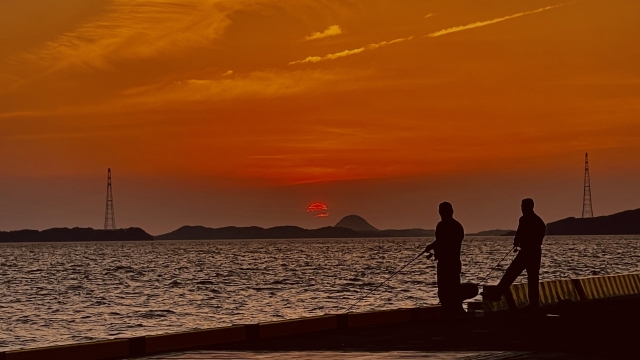
Bonus Tips for Stress-Free Campervan Fishing
Fishing can be unpredictable, and you won’t always land the day’s biggest catch. That’s when having a comfortable and flexible campervan really shines:
- Enjoy the Process: Focus on being in nature, listening to the waves, and experimenting with different rigs and techniques.
- Engage in Other Activities: Bring a camera, a sketchbook, or cooking supplies so you can make the most of your time off the rod.
- Keep Plans Flexible: If one spot isn’t working out, drive to a nearby location. Treat less successful days as research for your next trip.
- Create a Cozy Space: Add little comforts like quality bedding, good lighting, and your favorite music or movies to enjoy back in the van.
- Shared Adventures: Invite friends or family. Even if they’re not into fishing, they can relax, explore, or savor the fresh air while you cast your line.
By keeping an open mind and prioritizing comfort, you’ll find every campervan fishing trip in Japan to be a memorable adventure—regardless of the catch.

